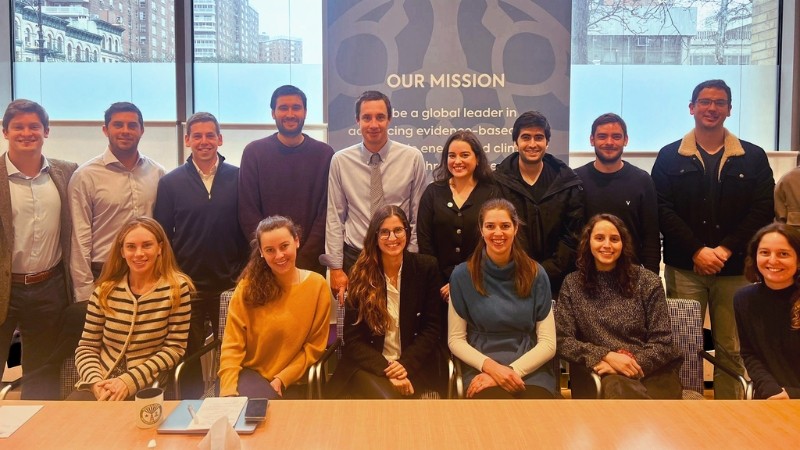In the context of the Center on Global Energy Policy's (CGEP) Energy Summit 2024, Juan Carlos Jobet, a CGEP Distinguished Visiting Fellow and former Chilean Minister of Mining and Energy, held two engaging discussions with Chilean and Latin American students at the Columbia University campus on Thursday, April 18. The focus of the discussions was the energy transition and the crucial role critical minerals will play both in Chile and at a regional scale.
Organized by Patricia García-Huidobro (SIPA'25), Vice President of the Latin American and Caribbean Student Association (LASA) at SIPA, and Gabriela Manríquez (SIPA'25), a Global Energy Fellow at CGEP, both Chilean students pursuing an MPA in Energy & Environment at the School of International and Public Affairs (SIPA), the events brought together students from various disciplines.
On Thursday morning, Jobet met with Chilean postgraduate students from Columbia's SIPA, Business, Law, and Engineering schools. The conversation centered on Chile's energy transition, the accelerated coal phase-out, its impact on national growth, and the opportunities that the country has in terms of the development and strengthening of industries such as lithium and copper. Given Chile's position as the world's largest holder of lithium and copper reserves, Jobet also emphasized the significant competitive advantages Chile holds, particularly in renewable energies and critical minerals. He also addressed the need for the development of a green hydrogen industry.

